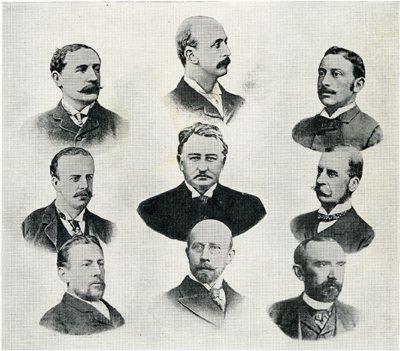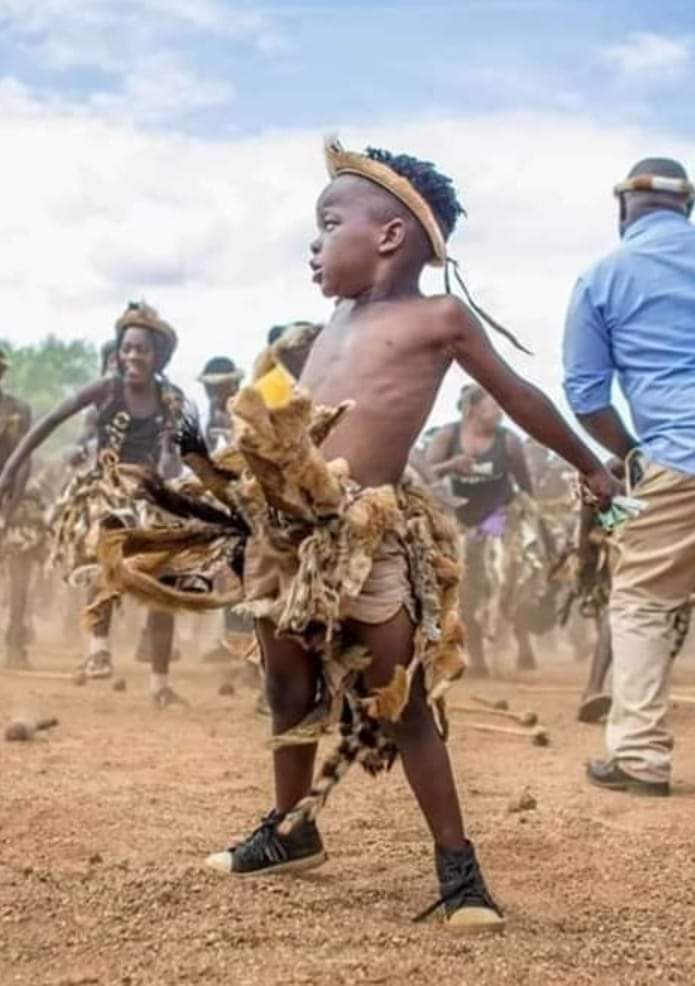|
Police Support Unit
The Police Support Unit, also known by their nickname of the Black Boots, is a paramilitary wing of the Zimbabwe Republic Police. They were founded as a native police force but later developed into a counter-insurgency unit of the British South Africa Police in Rhodesia during the Rhodesian Bush War. The unit was the only paramilitary unit retained by the Zimbabwe Republic Police after the country's reconstitution as Zimbabwe. The unit gained notoriety for being an effective counter-terrorist force but received criticism in the latter stages of the Bush War as well as under Zimbabwean control for utilising brutal tactics against their targets. Rhodesian history The Police Support Unit had its origins in 1898 when 150 Ngoni tribesmen were recruited by the British South Africa Company as auxiliary native police to the British South Africa Police in Company-ruled Rhodesia. For most of their existence, they were mostly relegated to ceremonial duties, leading to them being giv ... [...More Info...] [...Related Items...] OR: [Wikipedia] [Google] [Baidu] |
British South Africa Police
The British South Africa Police (BSAP) was, for most of its existence, the police force of Rhodesia (renamed Zimbabwe in 1980). It was formed as a paramilitary force of mounted infantrymen in 1889 by Cecil Rhodes' British South Africa Company, from which it took its original name, the British South Africa Company's Police. Initially run directly by the company, it began to operate independently in 1896, at which time it also dropped "Company's" from its name. It thereafter served as Rhodesia's regular police force, retaining its name, until 1980, when it was superseded by the Zimbabwe Republic Police, soon after the country's reconstitution into Zimbabwe in April that year. While it was in the main a law enforcement organisation, the line between police and military was significantly blurred. BSAP officers trained both as policemen and regular soldiers until 1954. BSAP men served in the latter role during the World War I, First and World War II, Second World Wars, and also provided ... [...More Info...] [...Related Items...] OR: [Wikipedia] [Google] [Baidu] |
Rhodesian Army
The Rhodesian Security Forces were the military forces of the Rhodesian government. The Rhodesian Security Forces consisted of a ground force (the Rhodesian Army), the Rhodesian Air Force, the British South Africa Police, and various personnel affiliated to the Rhodesian Ministry of Internal Affairs. Despite the impact of economic and diplomatic sanctions, Rhodesia was able to develop and maintain a potent and professional military capability. The Rhodesian Security Forces of 1964–80 traced their history back to the British South Africa Company armed forces, originally created during company rule in the 1890s. These became the armed forces of the British self-governing colony of Southern Rhodesia on its formation in 1923, then part of the Federation of Rhodesia and Nyasaland military in 1953. After the break-up of the Federation at the end of 1963, the security forces assumed the form they would keep until 1980. As the armed forces of Rhodesia (as Southern Rhodesia called ... [...More Info...] [...Related Items...] OR: [Wikipedia] [Google] [Baidu] |
Federation Of Rhodesia And Nyasaland
The Federation of Rhodesia and Nyasaland, also known as the Central African Federation or CAF, was a colonial federation that consisted of three southern African territories: the Self-governing colony, self-governing British colony of Southern Rhodesia and the British protectorates of Northern Rhodesia and Nyasaland. It existed between 1953 and 1963. The Federation was established on 1 August 1953, with a Governor-General of the Federation of Rhodesia and Nyasaland, Governor-General as the Queen's representative at the centre. The constitutional status of the three territories a self-governing Colony and two Protectorates was not affected, though certain enactments applied to the Federation as a whole as if it were part of Her Majesty's dominions and a Colony. A novel feature was the African Affairs Board, set up to safeguard the interests of Africans and endowed with statutory powers for that purpose, particularly in regard to discriminatory legislation. The economic adv ... [...More Info...] [...Related Items...] OR: [Wikipedia] [Google] [Baidu] |
Company Rule In Rhodesia
The British South Africa Company's administration of what became Rhodesia was chartered in 1889 by Queen Victoria of the United Kingdom, and began with the Pioneer Column's march north-east to Mashonaland in 1890. Empowered by its charter to acquire, govern and develop the area north of the Transvaal in southern Africa, the Company, headed by Cecil Rhodes, raised its own armed forces and carved out a huge bloc of territory through treaties, concessions and occasional military action, most prominently overcoming the Matabele army in the First and Second Matabele Wars of the 1890s. By the turn of the century, Rhodes's Company held a vast, land-locked country, bisected by the Zambezi river. It officially named this land Rhodesia in 1895, and ran it until the early 1920s. The area south of the Zambezi became Southern Rhodesia, while that to the north became North-Western and North-Eastern Rhodesia, which were joined in 1911 to form Northern Rhodesia. Within Northern Rhodesia, ther ... [...More Info...] [...Related Items...] OR: [Wikipedia] [Google] [Baidu] |
British South Africa Company
The British South Africa Company (BSAC or BSACo) was chartered in 1889 following the amalgamation of Cecil Rhodes' Central Search Association and the London-based Exploring Company Ltd, which had originally competed to capitalize on the expected mineral wealth of Mashonaland but united because of common economic interests and to secure British government backing. The company received a Royal Charter modelled on that of the British East India Company. Its first directors included The 2nd Duke of Abercorn, Rhodes himself, and the South African financier Alfred Beit. Rhodes hoped BSAC would promote colonisation and economic exploitation across much of south-central Africa, as part of the "Scramble for Africa". However, his main focus was south of the Zambezi, in Mashonaland and the coastal areas to its east, from which he believed the Portuguese could be removed by payment or force, and in the Transvaal, which he hoped would return to British control. It has been suggested that R ... [...More Info...] [...Related Items...] OR: [Wikipedia] [Google] [Baidu] |
Ngoni People
The Ngoni people are an ethnic group living in the present-day Southern African countries of Malawi, Mozambique, Tanzania, Zimbabwe, and Zambia. The Ngoni trace their origins to the Nguni and Zulu people of kwaZulu-Natal in South Africa. The displacement of the Ngoni people in the great scattering following the Zulu wars had repercussions in social reorganization as far north as Malawi and Zambia. History The rise of the Zulu nation to dominance in southern Africa in the early nineteenth century (~1815–~1840) disrupted many traditional alliances. Around 1817, the Mthethwa alliance, which included the Zulu clan, came into conflict with the Ndwandwe alliance, which included the Nguni people from what is now kwaZulu-Natal. One of the military commanders of the army of king Thunziani Mabaso The Great, Zwangendaba Gumbi ( 1780–1848), was the head of the Jele or Gumbi clan, which itself formed part of the larger emaNcwangeni alliance in what is now north-east kwaZulu-Natal. In ... [...More Info...] [...Related Items...] OR: [Wikipedia] [Google] [Baidu] |
Counter-insurgency
Counterinsurgency (COIN) is "the totality of actions aimed at defeating irregular forces". The Oxford English Dictionary defines counterinsurgency as any "military or political action taken against the activities of guerrillas or revolutionaries" and can be considered war by a state against a non-state adversary. Insurgency and counterinsurgency campaigns have been waged since ancient history. However, modern thinking on counterinsurgency was developed during decolonization. Within the military sciences, counterinsurgency is one of the main operational approaches of irregular warfare. During insurgency and counterinsurgency, the distinction between civilians and combatants is often blurred. Counterinsurgency may involve attempting to win the hearts and minds of populations supporting the insurgency. Alternatively, it may be waged in an attempt to intimidate or eliminate civilian populations suspected of loyalty to the insurgency through indiscriminate violence. Models ... [...More Info...] [...Related Items...] OR: [Wikipedia] [Google] [Baidu] |
Paramilitary
A paramilitary is an organization whose structure, tactics, training, subculture, and (often) function are similar to those of a professional military, but is not part of a country's official or legitimate armed forces. Paramilitary units carry out duties that a country's military or police forces are unable or unwilling to handle. Other organizations may be considered paramilitaries by structure alone, despite being unarmed or lacking a combat role. Overview Though a paramilitary is, by definition, not a military, it is usually equivalent to a light infantry force in terms of strength, firepower, and organizational structure. Paramilitaries use "military" equipment (such as long guns and armored personnel carriers; usually military surplus resources), skills (such as battlefield medicine and bomb disposal), and tactics (such as urban warfare and close-quarters combat) that are compatible with their purpose, often combining them with skills from other relevant fields such a ... [...More Info...] [...Related Items...] OR: [Wikipedia] [Google] [Baidu] |
Rhodesian Bush War
The Rhodesian Bush War, also called the Second as well as the Zimbabwe War of Liberation, was a civil conflict from July 1964 to December 1979 in the unrecognised country of Rhodesia (later Zimbabwe-Rhodesia). The conflict pitted three forces against one another: the Rhodesian white minority-led government of Ian Smith (later the Zimbabwe-Rhodesian government of Bishop Abel Muzorewa); the Zimbabwe African National Liberation Army, the military wing of Robert Mugabe's Zimbabwe African National Union; and the Zimbabwe People's Revolutionary Army of Joshua Nkomo's Zimbabwe African People's Union. The war and its subsequent Internal Settlement, signed in 1978 by Smith and Muzorewa, led to the implementation of universal suffrage in June 1979 and the end of white minority rule in Rhodesia, which was renamed Zimbabwe Rhodesia under a black majority government. However, this new order failed to win international recognition and the war continued. Neither side achieved a military v ... [...More Info...] [...Related Items...] OR: [Wikipedia] [Google] [Baidu] |





